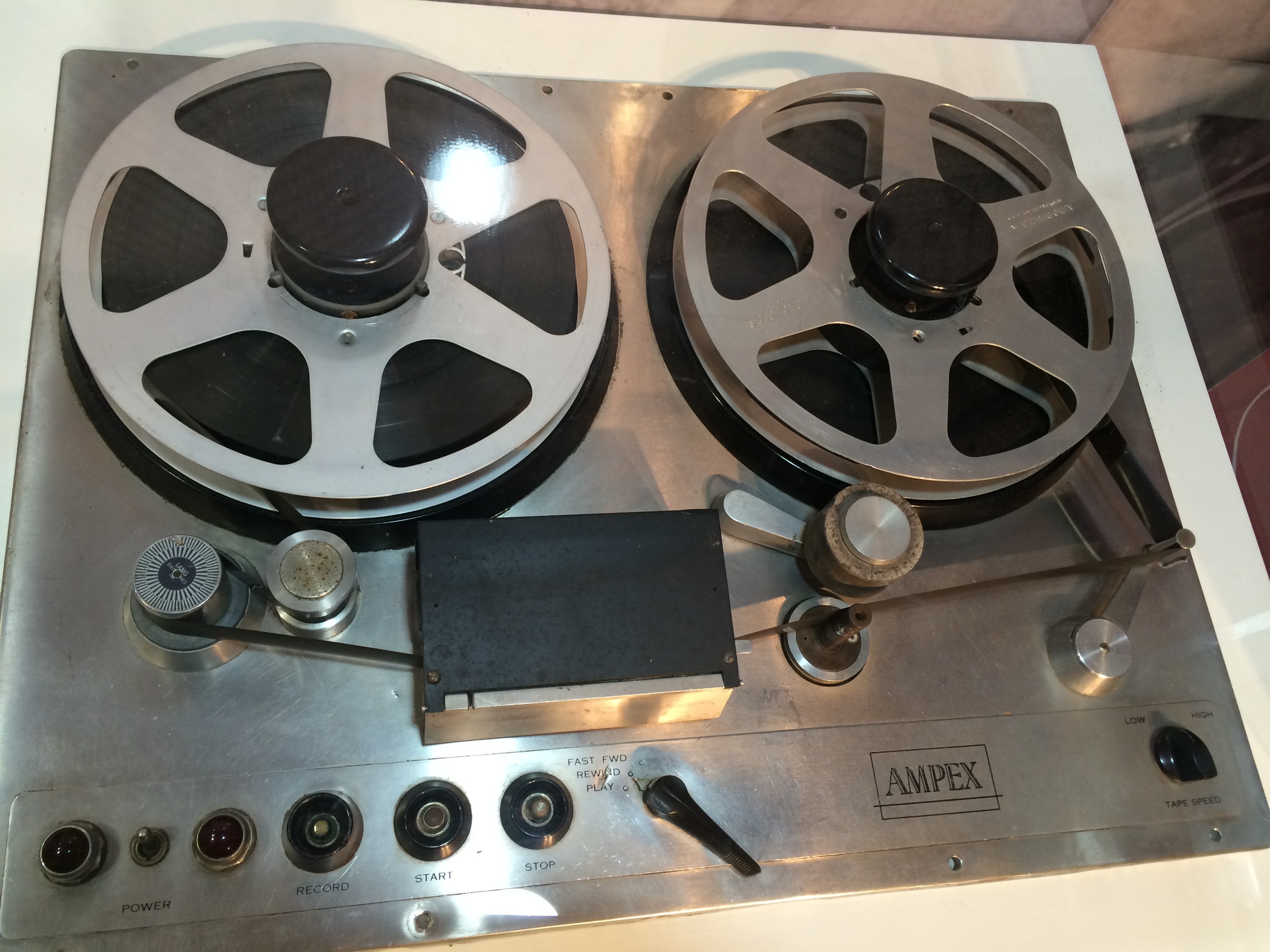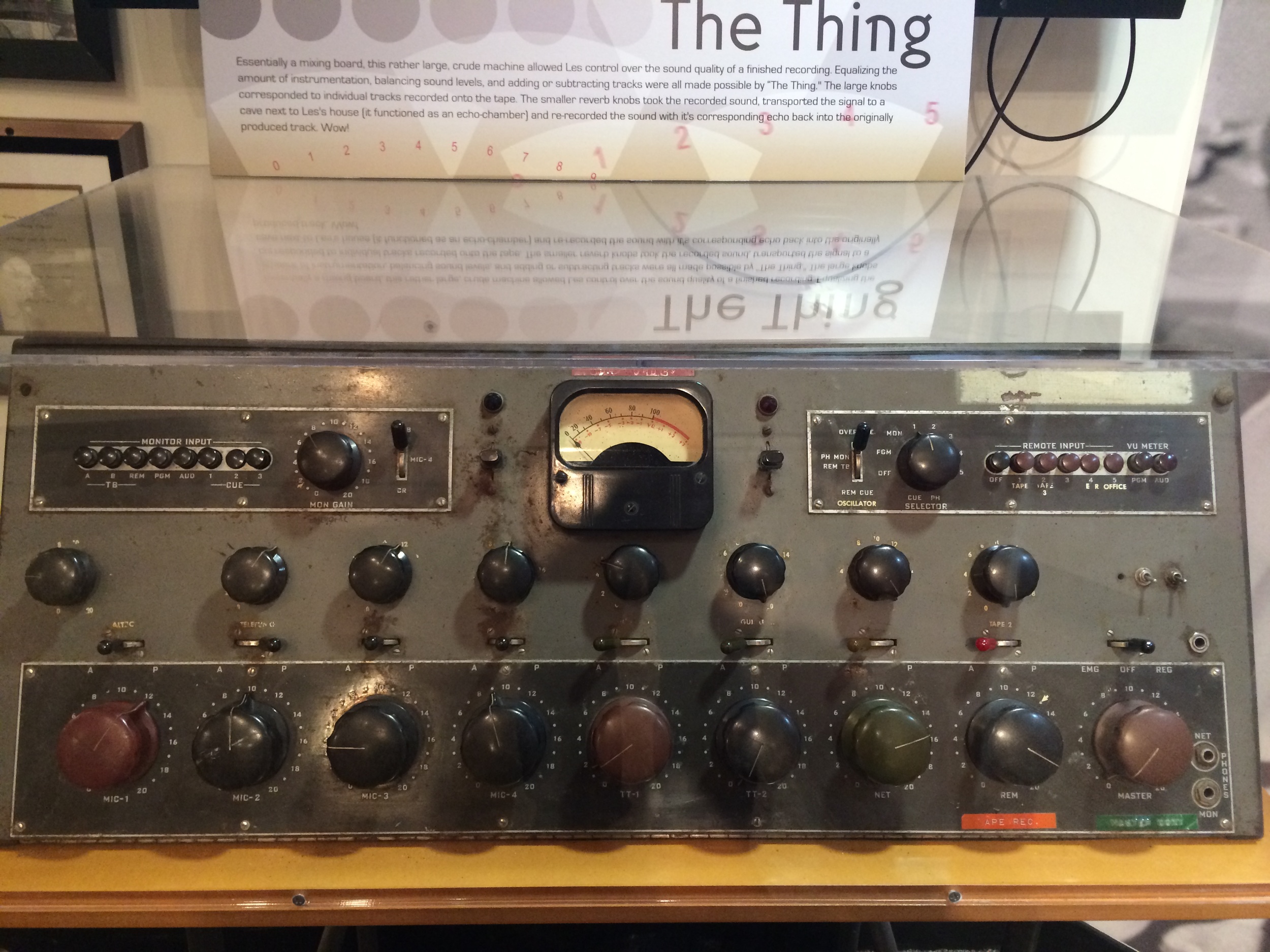I recently attended the Time Warner STEMFest at Discovery World here in Milwaukee. I was floored by the museum's Les Paul exhibit. Since he is a Wisconsin native, the exhibit is a vast exploration of his life and how his inventive mind literally transformed music.
I knew Les Paul's name from his Gibson guitar line, but I had no idea that he was a true scientific inventor at heart. He grew up learning about sound by using the family piano, studying the rumbles from the nearby train station, and analyzing a record player (phonograph). He built most things that he used, from his original guitar idea that he shared with Gibson to his own recording studio.
Distortion, reverb, and delay were all terms that Paul mastered within the musical lexicon. He also helped launch multitrack recording, which enabled him to put different vocals / instruments on different tracks and mix them together.
Check out the pics below from Paul's exhibit and make sure to swing by if you're in the Milwaukee area!
My turntables might wobble but they won't fall down
Les Paul was an inventor at heart.
From wikipedia: Les Paul , a friend of Crosby's and a regular guest on his shows, had already been experimenting with overdubbed recordings on disc. He received an early portable Ampex Model 200A from Crosby. He invented Sound on Sound recording using this machine. He placed an additional playback head, located before the conventional erase/record/playback heads. This allowed Paul to play along with a previously recorded track, both of which were mixed together on to a new track.
Basic hardware behind a recording studio
One of Les Paul's mixing boards
Make 8 bit music after the Les Paul exhibit


















